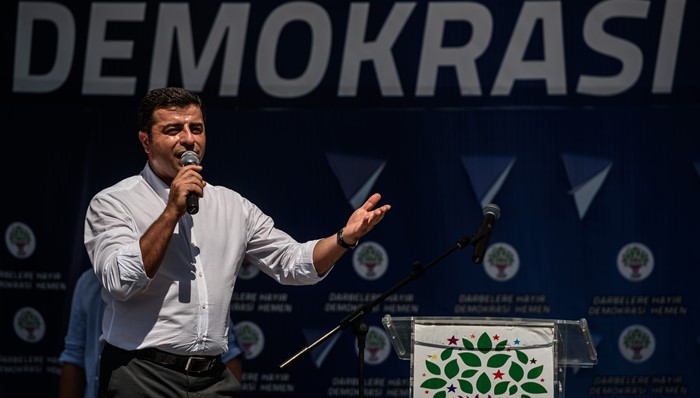Pro-Kurdish Peoples’ Democratic Party (HDP) Co-chairperson Selahattin Demirtaş, who has been jailed since November 2016, has said the results of a recent referendum in Turkey would have been different had he and his colleagues not been imprisoned.
Demirtaş, who was arrested in November along with several other party deputies including the other co-chairperson, Figen Yüksekdağ, on terror charges, has commented on the results of a referendum on April 16 that expanded the powers of President Recep Tayyip Erdoğan and introduced an executive presidency in the country.
“I am asking when what we have experienced is still not history: If we were not in jail [despite all the tricks and injustice] wouldn’t the referendum result definitely have been a ‘no’? Couldn’t we have persuaded at least 1.3 percent of the electorate to vote ‘no’? Have no doubt, we would have done more,” Demirtaş wrote from prison in Edirne province.
Last month, the Parliamentary Assembly of the Council of Europe (PACE) said the democratic referendum in Turkey was hindered by restrictions on freedom of expression, association, movement and assembly under the country’s continuing emergency rule, according to a report by the Stockholm Center for Freedom (SCF).
“The fundamental freedoms of expression, assembly and association, which are already circumscribed by the Constitution and related legislation, were further restricted by the use of extraordinary powers under the state of emergency, hindering the conduct of a democratic referendum. This included provincial governors exercising their authority under the state of emergency to limit freedom of movement, association, assembly and expression,” the report, which was approved by the Bureau of Assembly on May 29, noted.
PACE also criticized the way the constitutional referendum was held on April 16, saying that it took place on “an unlevel playing field and the two sides of the campaign did not have equal opportunities.”
“Voters were not provided with impartial information about key aspects of the reform, and civil society organisations were not able to participate. Under the state of emergency put in place after the July 2016 failed coup attempt, fundamental freedoms essential to a genuinely democratic process were curtailed,” the report said.
Stressing that the dismissal or detention of thousands of citizens negatively affected the political environment, PACE noted that “the ‘Yes’ campaign’s dominance in the coverage and restrictions on the media reduced voters’ access to a plurality of views.”

